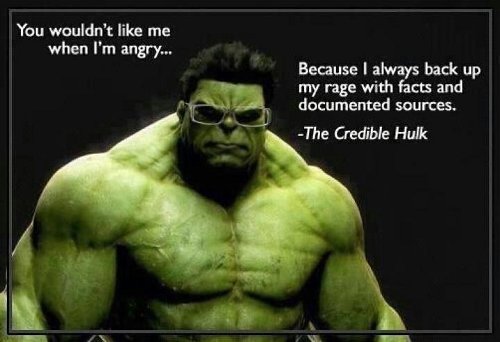Should Mathematicians Cooperate with GCHQ? Part 2
Posted by Tom Leinster
A month ago, the newsletter of the London Mathematical Society published an opinion piece of mine, Should mathematicians cooperate with GCHQ?. It has just published an opposing opinion by Richard Pinch, GCHQ’s Strategic Advisor for Mathematics Research and formerly a number theorist at Cambridge.
Pinch’s reply is short and curiously insubstantial. First he makes a couple of general assertions in opposition to what I wrote. But unlike my piece, which linked heavily to sources, he provides no evidence for his assertions. Nor does he dispute any of the specific facts stated in my article. Then he quotes a politician and the director of GCHQ saying that they believe GCHQ operates with integrity. And that’s it.
So it’s almost too flimsy to be worth answering. However, it’s probably worth rebutting even insubstantial arguments when they come from people in positions of influence. Here’s my rebuttal.
Richard Pinch writes:
Dr Leinster’s opinion piece makes a range of allegations of unethical and unlawful conduct against GCHQ.
Whether GCHQ’s conduct is unlawful is not something I’m qualified to judge, and I didn’t: I wrote that it was “accused of law-breaking on an industrial scale”. Some of those doing the accusing are very well-qualified to do so. E.g. here’s the opinion of a Queen’s Counsel (a high rank of lawyer in the British system) specializing in public law:
- Huge swath of GCHQ mass surveillance is illegal, says top lawyer. The Guardian, 28 January 2014.
Then there’s European law:
- NSA and GCHQ activities appear illegal, says EU parliamentary inquiry. The Guardian, 9 January 2014.
And then there’s GCHQ’s own opinion:
- Leaked memos reveal GCHQ efforts to keep mass surveillance secret. The Guardian, 25 October 2013.
This article describes GCHQ internal memos showing how it feared legal challenge in the European courts if the existence of its mass surveillance programmes became known. So even GCHQ was well aware that its methods were legally precarious, at the very least.
All these articles were linked to in my original piece.
Pinch continues:
The allegations are so widely drawn that it is impossible for GCHQ to recognise them as a description of its activities.
Snowden’s leaks provide detailed documentary evidence for my claims. Neither GCHQ nor the NSA has challenged their authenticity. For every allegation I made in my article, I linked to either the documents or journalism based on them. The leaked documents are available for anyone to read.
Pinch provides no evidence of any kind in his article. Nor does he deny any specific assertion that I made.
Continuing with Pinch’s article:
GCHQ, along with the other intelligence agencies of the UK, is subject to some of the most rigorous legislative and oversight arrangements in the world.
Compare the statement of one of GCHQ’s own lawyers:
“We have a light oversight regime compared with the US”.
(The legal loopholes that allow GCHQ to spy on the world. The Guardian, 21 June 2013.)
How rigorous is “light oversight […] compared with the US”? Well, the secret court that regulates the NSA (and to which the NSA has been legally found to have lied repeatedly) rejects just 1 in 3000 of the NSA’s surveillance requests. And GCHQ claims an oversight regime that’s even lighter.
It’s not just this one GCHQ lawyer who says that GCHQ is more weakly regulated than the NSA:
in the documents GCHQ describes Britain’s surveillance laws and regulatory regime as a “selling point” for the Americans.
(Exclusive: NSA pays £100m in secret funding for GCHQ. The Guardian, 1 August 2013.) Update: See also this comment below.
(Incidentally, it’s not clear whether GCHQ gets away with whole-population surveillance by being so weakly controlled that it can break the law with impunity, or by not needing to break the law because the law’s so weak. As I said, I’m not qualified to judge what’s legal, and actually, legality isn’t of primary interest to me — as we all know, laws can be arbitrary or wrong.)
Pinch continues:
These ensure that all the work of the agencies is carried out in accordance with a strict legal and policy framework so that their activities are at all times legal, authorised, necessary and proportionate.
Whether it’s legal, I’ve already discussed. As for “policy framework”: sure, presumably the vast surveillance programmes being run by GCHQ do fit into some internal policy framework, but it’s no kind of democratic policy. Obviously there was no public discussion, but far more radically, even a senior Member of Parliament on the UK National Security Council claims not to have known:
- Cabinet was told nothing about GCHQ spying programmes, says Chris Huhne. The Guardian, 6 October 2013.
The rest of Pinch’s piece consists of pro-GCHQ quotes from the British Foreign Secretary and the Director of GCHQ. I could say pro-GCHQ things too; like just about everyone, I believe that some of what GCHQ does is worthwhile and justified. But that’s just opinion.
It’s the facts revealed by the Snowden papers that are so shocking. And when it comes to the facts, Pinch has disputed no factual statement about GCHQ made in my article, nor has he given us any reason to disbelieve the evidence before our eyes.


Re: Should Mathematicians Cooperate with GCHQ? Part 2
In the state of California, a ridiculous number of laws are passed by ballot referendum, i.e., all registered voters in the state vote on them directly. I personally think this is a terrible system, but the state does a good job of providing voters with a lot of information to help make an informed decision. The literature from the state includes, among other things, statements from a supporter and a detractor of each ballot measure, along with the supporter’s and detractor’s rebuttals of each other’s statements. When I lived in California, I frequently found that the best way to decide how to vote was to identify the weaker rebuttal.